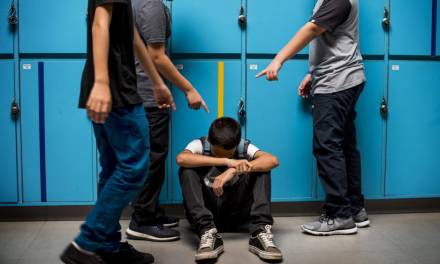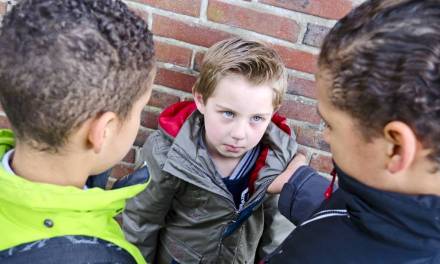Racist bullying is endemic in our schools in the UK, according to a report on racism in schools released this week.
Analysis of Government figures by campaigners Hope Not Hate – and published in the London Evening Standard – found that English schools suspended or permanently excluded students 4,904 times for racist abuse in 2018-19.
It marks a 13% increase from 4,329 which was record in 2017-18 – and it is the highest number since records began in 2006.
Why is racist bullying so high and what can be done about it? This blog post explains.
Little Mix star shares experience of racist bullying
The statistics come as Little Mix’s Leigh-Anne Pinnock opened up on how racism affected whilst she was at school.
Speaking to The Sun, she told journalists how she was passed a note whilst at school which listed her nationality as “jungle”.
My heart just dropped. I was nine years old and I knew it was racism. I was distraught. I just wish that I knew more back then. I wish that I was more educated on racism and that I knew that, yes, your race will hold you back a little bit – it will.
I just wish I knew that so that I could prepare myself and I didn’t question the fact, ‘Oh, I’m not good enough, I’m not pretty enough, why do I feel like this?’
Rochelle Humes from The Saturdays also spoke about her experiences. She said she was once not invited to a birthday party, “because she was Black”, leading to her to try to “scrub her skin off”.
I’m not upset for me. I’m upset because my little girl is the same age and I just don’t know how would handle that.
Statistics show schools take bullying seriously
Hope Not Hate said that the figures showed that schools were taking racist bullying seriously.
Owen Jones, head of education at the group said:
From what we have seen, there is a much better concerted effort to clamp down and take it more seriously.
The process of exclusions is fraught for everyone involved, but the tolerance for that behaviour is reducing.
Students of colour are having more confidence to speak up. It’s not just about the ‘n’ word, it’s about comments made throughout the day which make students feel unwelcome.
Racist bullying an increasing issue
However, Angela Wright, education development lead at anti-hate crime charity Stop Hate UK, said that younger people are increasingly being targeted with racism.
It is important to remember that behind every hate incident is an individual and family that are affected.
Are exclusions the answer?
Children’s Commissioner, Anne Longfield, said that preventative measures should be put in place to ensure exclusions do not take place.
Excluding a child makes them more vulnerable to exploitation by criminal gangs and less likely to leave education with the qualifications they need to succeed.
The Department for Education added:
We know that some pupils will return to school in September having experienced loss or adversity as a result of the coronavirus pandemic, which is why we have also provided guidance for school leaders on how to re-engage these pupils and create the right classroom environment to help them thrive.
How can EDClass help?
EDClass can help to reduce bullying in schools – with a range of bullying lessons for students to learn from.
We have a proven track record of reducing school exclusions.
EDClass was initially designed to prevent 34 students from being excluded from one school over a term in our pilot year in 2008. It is now a powerful resource for your pupils to continue learning when working in an inclusion unit or have been excluded.
The system gives every child the opportunity for success through the study or core subjects. 11,000+ lessons are available.
Personalised learning pathways are available for pupils to work to a learning plan that meet their needs.
Further, a sophisticated tracking system means you can monitor students’ progress. It means feedback can be provided which best means pupils’ needs, students receive instant feedback and they can be presented in the form of printable reports for recordkeeping.
Read more: Possible signs of bullying
To find out more call 01909 568 338.










